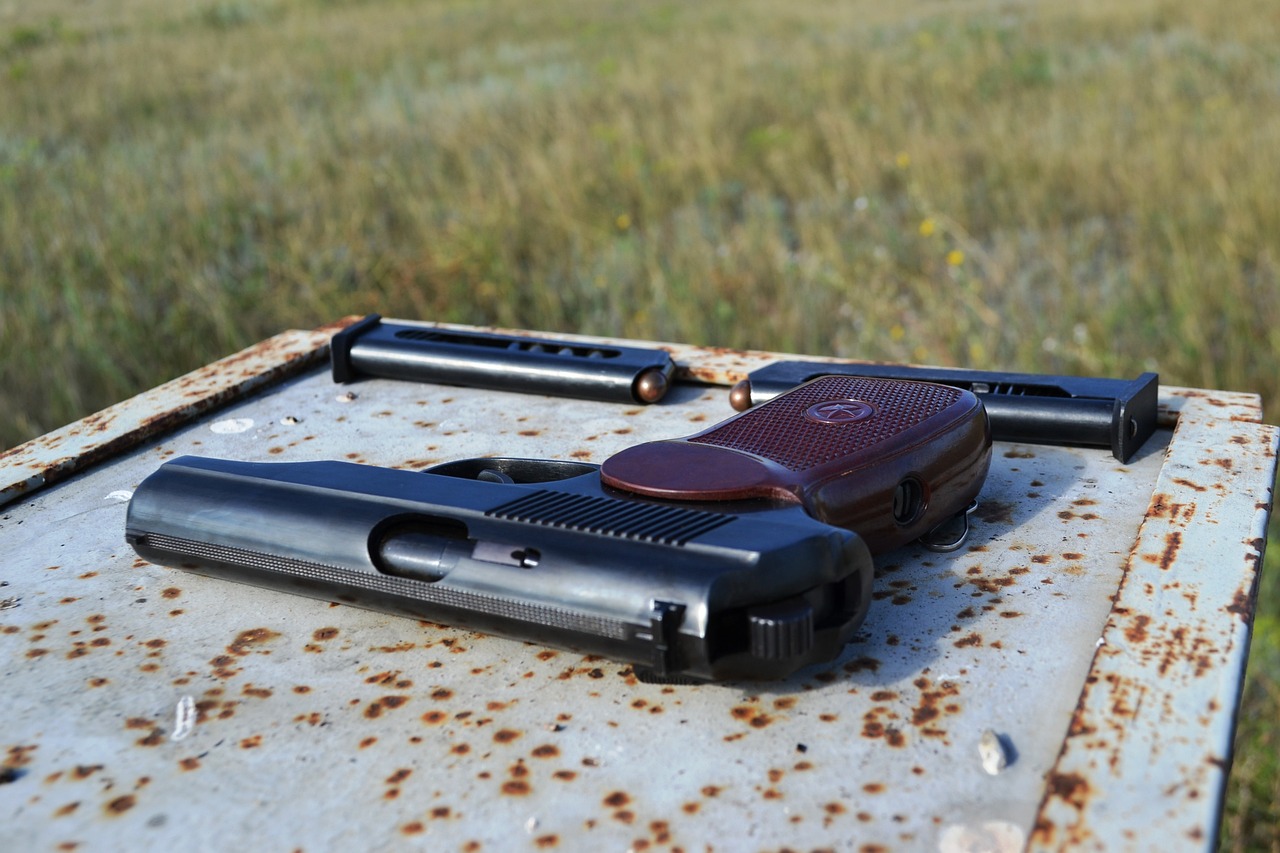Guns in Alabama: A Comprehensive Overview
Summary:
Alabama’s landscape for firearms ownership and regulation continues to shift, shaped by evolving laws, advancements in technology, and ongoing debates. This article delves into the current state of guns in Alabama, explores emerging trends, and provides a comprehensive guide to understanding and navigating this complex topic.
The Current State of Guns in Alabama
Alabama has long been known for its strong gun ownership culture. According to the Gun Violence Archive, there are approximately 3 million privately owned firearms in the state, ranking it among the top 10 states in terms of gun ownership. Alabama’s gun laws are generally considered permissive, with few restrictions on the purchase, possession, and use of firearms.
Emerging Trends Shaping the Future of Guns
Advancements in Firearms Technology:
Technological advancements are continually shaping the firearms industry. New gun technologies, such as polymer-framed pistols and AR-style rifles, have become increasingly popular due to their lightweight, modular designs, and enhanced accuracy.
Heightened Focus on Safety:
Concerns about gun safety have led to an emphasis on responsible firearm ownership. Gun safety courses and programs are being offered by a growing number of organizations, aiming to educate individuals on proper firearm handling and storage practices.
Legal Challenges to Gun Laws:
Alabama’s gun laws have faced legal challenges in recent years. Several lawsuits have been filed by gun rights advocates seeking to overturn restrictions on concealed carry and other gun-related measures. These challenges highlight the ongoing debate surrounding gun regulation in the state.
Key Players and Influencers in Alabama’s Guns Market
Firearms Industry:
The firearms industry plays a significant role in Alabama’s economy. Major firearm manufacturers, such as Smith & Wesson, Umarex USA, and Sig Sauer, have facilities located in the state. These companies contribute to job creation and boost economic development.
Law Enforcement Agencies:
Law enforcement agencies in Alabama are responsible for enforcing gun laws and promoting public safety. Local police departments and the Alabama Law Enforcement Agency work together to regulate firearms and respond to firearm-related incidents.
Gun Rights Advocates:
Organizations such as the National Rifle Association (NRA) and the Alabama Gun Rights Foundation advocate for the protection of gun rights in the state. They lobby lawmakers and educate the public about gun ownership and responsible firearm use.
A Step-by-Step Guide to Implementing Guns
Step 1: Understand the Laws:
Before purchasing or using a firearm in Alabama, it’s crucial to familiarize yourself with state and federal laws governing firearms ownership, possession, and use.
Step 2: Choose a Firearm:
Selecting the appropriate firearm involves considering factors such as intended use, caliber, and features. It’s recommended to consult with a firearms retailer or instructor for guidance.
Step 3: Obtain a Concealed Carry Permit (Optional):
Individuals who wish to carry a concealed firearm need to apply for a concealed carry permit through the Alabama Sheriff’s Association. This permit allows the concealed carry of pistols and revolvers.
Common Mistakes to Avoid When Using Guns
Unsafe Storage:
Improper storage of firearms can lead to accidents and unauthorized access. Always store firearms in a locked safe or cabinet and keep them unloaded and separate from ammunition.
Negligent Operation:
Negligent operation of firearms poses a serious threat to safety. Never point a firearm at anything you don’t intend to shoot and ensure it’s pointed in a safe direction when handling it.
Lack of Training:
Insufficient training can increase the risk of mishandling and accidental discharges. Seek professional firearm training to develop proper firearm handling and shooting techniques.
Case Studies: Successful Guns Implementations in Alabama
Gun Buyback Programs:
Several municipalities in Alabama have implemented gun buyback programs aimed at reducing the number of illegal or unwanted firearms in circulation. These programs provide individuals with an opportunity to anonymously turn in firearms in exchange for compensation.
Firearm Safety Initiatives:
Community organizations and law enforcement agencies in Alabama have initiated firearm safety awareness campaigns to educate the public about responsible firearm ownership and storage practices. These initiatives include safety demonstrations, workshops, and educational materials.
Future Predictions and Opportunities for Guns
Expanding Concealed Carry Rights:
There’s a growing movement to expand concealed carry rights in Alabama. Legislation is being considered to remove current restrictions on concealed carry in churches and other public places.
Advancements in Technology:
Technological advancements, such as biometric gun safes and smart firearms, will continue to shape the firearms industry. These technologies aim to enhance gun safety and prevent unauthorized access to firearms.
TL;DR (Too Long; Didn’t Read)
Guns play a significant role in Alabama’s culture and economy. While the state has generally permissive gun laws, technological advancements, safety concerns, and legal challenges are reshaping the firearms landscape. Understanding the laws, choosing firearms responsibly, and practicing safe handling are crucial for responsible firearm ownership. Community initiatives and law enforcement efforts are working to promote gun safety and prevent firearm-related incidents. As technology continues to evolve and debates over gun rights persist, the future of guns in Alabama remains a topic of ongoing discussion and interest.
Narrative Summary
Alabama’s gun landscape continues to evolve, influenced by shifting laws, technological advancements, and ongoing debates about gun rights. While gun ownership is deeply ingrained in the state’s culture, there’s also a heightened focus on safety and responsible firearm use. Technological innovations, such as polymer-framed pistols and biometric gun safes, are transforming the industry and enhancing safety measures. Legal challenges to gun regulation have highlighted the ongoing tension between gun rights and public safety concerns.
As Alabama grapples with these evolving dynamics, there are opportunities for further advancements in gun safety. Expanding community outreach programs, implementing firearm buyback schemes, and embracing advancements in technology can contribute to a safer environment while respecting the rights of responsible gun owners. By fostering a culture of responsible firearm ownership, Alabama can navigate the future of guns in a way that balances the needs of both gun rights advocates and the general public.


